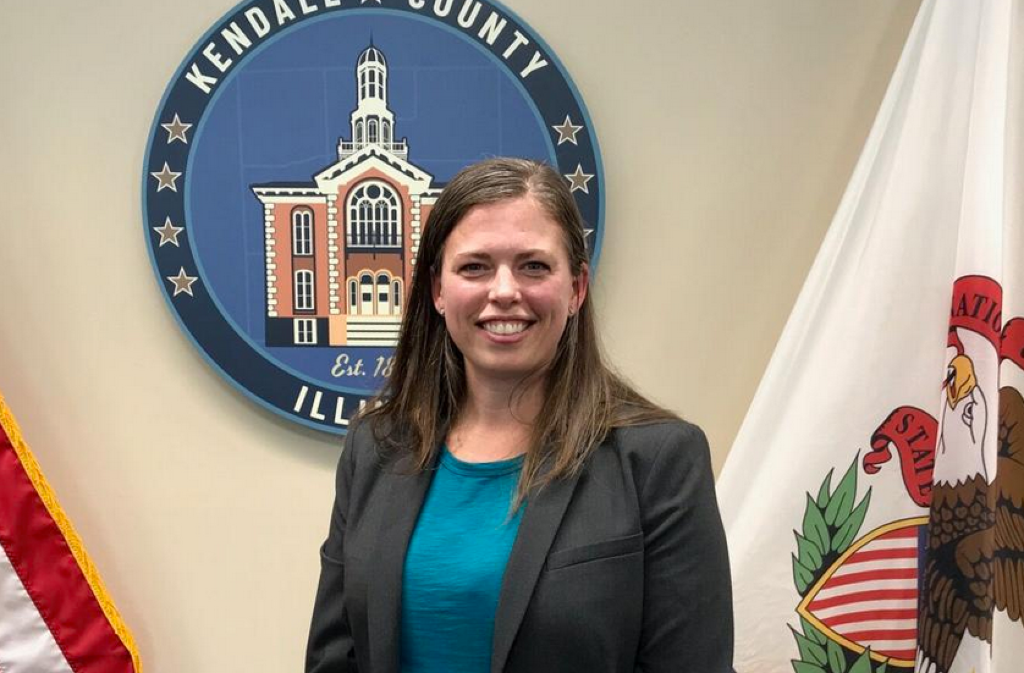Kendall County, Illinois, Builds Its Own Fiber Network After Being Snubbed By Big ISPs
The fiber-plus-fixed wireless project is estimated to cost $67 million to connect more than 13,000 county locations.
Karl Bode

Frustrated by years of substandard broadband service from regional telecom incumbents, Kendall County, Illinois residents have joined the growing chorus of Americans that are tackling the problem head on by building their own better, faster, more affordable fiber networks.
The Kendall County network, part of a public-private partnership (PPP or P3) with Pivot-Tech, is being funded by a tax-free revenue bond.
Kendall County officials tell ILSR that the full cost of the network, which will include private investment from Pivot-Tech, is expected to ultimately be $67 million, serving more than 13,000 locations county wide.
The first phase of the network build will consist of a combination of fixed wireless and fiber last and middle middle connectivity, supported by $15 million in state broadband grants made possible by 2021 American Rescue Plan Act (ARPA) legislation. Construction is slated to begin this fall, and officials say the county will own the finished network.
“The network is a combination of fiber and fixed wireless, with the goal to serve as many customers by fiber as possible,” Kendall County Administrator Christina Burns told ILSR. “The fixed wireless access count planned in phase one will be approximately 1,900. The remainder will be fiber to the premises.”
County officials are still finalizing the selection of a consumer-facing ISP.
“We have identified an ISP and are working through the details,” Burns said. “We do still plan for the network to be open access, hoping to bring more ISPs on in the future.”
Like so many communities we cover, the county’s foray into community broadband was forged by decades of local frustration with limited local broadband competition, high prices, and patchy service, which was painfully highlighted during COVID lockdowns.
Taking matters into their own hands
In 2022, the county of 137,254 residents partnered with Lit Communities to conduct a series of local hearings and surveys to gauge public opinion of their existing broadband options. What they found wasn’t surprising: residents were overwhelmingly frustrated by the high prices, patchy coverage, slow speed, and substandard support for existing broadband options.
AT&T and Comcast enjoy regional monopolies over large swaths of what’s currently one of the fastest growing counties in Illinois, just 90 miles from Chicago. Both companies have been consistently active in undermining community-owned broadband networks.
AT&T has seen particular controversy in the state after company executives were recently indicted for bribing Illinois lawmakers in exchange for favorable regulation that would eliminate requirements that the telco repair or upgrade its heavily taxpayer-subsidized DSL and phone networks.
In early 2023, the Kendall County Board established the Connect Kendall County Commission to study and assess the best path forward toward ensuring affordable fiber access to all county residents. Last April, the Commission released a request for proposal (RFP) for a Public-Private Partnership (PPP, or P3) capable of accomplishing the county’s goals.
In August of 2023, the county selected Denver-based Pivot-Tech to help it build the new fiber network.
“The P3 model for the network supports the initial construction cost by bringing private equity funds to the project and providing for ongoing network operations,” the county said of the effort.
“The operating revenue would provide a market-rate of return on private investment and opens the opportunity for the County to receive revenue from the network’s operations. At the conclusion of the P3 concession agreement, the County would own the network and would determine at that time whether to self-operate, lease or enter into a new P3 agreement.”
Last May, the county struck a predevelopment agreement with Pivot-Tech to begin the effort to connect the 1,900 homes in Kendall County currently considered unserved or underserved.
Born out of apathy from local telecom incumbents
Zach Bachmann, a Kendall County board member and chairman of the Connect Kendall County Commission, recently told Fierce Network that the county had had conversations with regional telecom giants Comcast and AT&T about the potential for expanding broadband access, but those discussions were far from fruitful. Or as Bachman described it:
“They didn’t come there to be a partner. They said: ‘No we don’t have a plan for baseline affordability. No, we won’t connect your anchor institutions. We’re doing our own thing, bye.’”
As with so many communities, the county was heavily incentivized by its experiences with telecommuting and home education during COVID lockdowns, which painfully illustrated the need for faster, cheaper, and more reliable broadband access.
“It’s a really innovative approach to delivering broadband,” Kendall County's Burns told one local news outlet. “When the pandemic hit, there were homes where kids couldn’t do online schooling because they didn’t have quality internet access within Kendall County. So we’re really hoping to provide a high level of service at a very reasonable rate.”
In addition to driving affordable access to residential and business customers, the network will also be used to shore up municipal office connectivity, improve access at community anchor institutions, and potentially make the hosting of data centers more attractive to regional businesses.
“We are committed to providing 100/20 Mbps [megabit per second] services at a rate not to exceed $60 per month for the first five years,” Burns told ILSR. “Additional speed and pricing tiers will be available but have not yet been defined.”
The project is being heavily buoyed by a $15 million ARPA grant awarded to the county last March. Pivot-Tech is also expected to bring $25 million in additional private capital and project-based revenue bonds to help finance the network construction.
“It’s quite different than we’re accustomed to normally,” Pivot-Tech CEO Jim Cannon recently said of the effort. “It’s tax exempt. We’re not paying taxes on running a network. There’s no risk at the county level. We’re not asking the local community to do anything in terms of guaranteeing this money.”
The county says that funding through a tax-free revenue bond allows them to use excess profits to either expand the fiber network or return profits back to subscribers in order to lower customer bills.
That said, as ILSR has noted, PPPs can reduce community control over network builds and consumer costs, especially if the town doesn’t own the finished network.
County officials say they’ll be looking to leverage some of the $1 billion in BEAD (Broadband Equity, Access, and Deployment) funds Illinois will soon receive courtesy of the 2021 infrastructure bill as they work to drive their regional improvement efforts to fruition.
A version of this article was originally published on the website of the Institute for Local Self Reliance's Community Broadband Networks Initiative on Oct. 17, 2024, and is republished with permission.









Member discussion